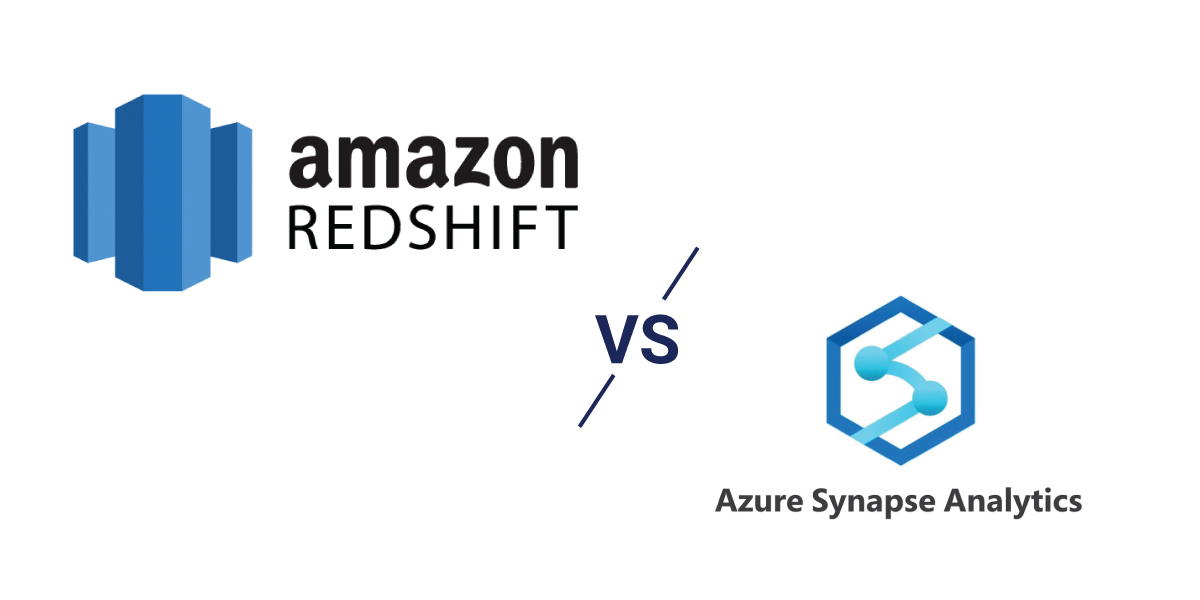Data warehousing improves access to information, speeds up query-response times, and allows organizations to fetch deeper insights from big data. Businesses need a data warehouse for quick information access, fast query response, and better insights.
The advent of cloud technology has significantly reduced the cost of data warehousing for businesses. Today, cloud data warehouse software & tools are fast, highly scalable, and available on a pay-per-use basis.
The following actions can be performed on data by utilizing the data warehouse (DWH) tools:
- Cleaning data while separating it from scrap or duplicate data
- Extraction, transformation, and loading (ETL) of the data from varied source formats onto a single standard format at the destination
- Querying data from the warehouse to fetch, update, delete, or analyze varied data combination
- Report creation for analysis and business decision-making processes
This article will discuss the robust and popular cloud data warehouse tools used with their key features.
Top Cloud Data Warehouse Tools & Software
Modern data warehousing solutions utilize cloud computing platforms.
Here are two of the most popular platforms offering 200+ cloud services from their data centers globally. These services/tools/products help combine disparate data sets, standardize values, extend access, and establish an expandable structure to use data across multiple business purposes.
Listed below are the front-running technology services/tools for DWH development;
A Comparison of Top Cloud Data Warehouse Services

Amazon Redshift
It is a cloud-based data warehousing service provided by Amazon Web Services (AWS).
- Designed to handle large amounts of data for analytics and business intelligence purposes. Redshift allows users to query petabytes of structured and semi-structured data using SQL queries.
- Based on a massively parallel processing (MPP) architecture, it can distribute data across multiple nodes in a cluster, allowing for fast query execution.
- Highly scalable, with the ability to add or remove nodes from a cluster as needed to handle changes in data volume
- Provides features for data management, such as data compression, backup and restore, and data encryption for security
Overall, Amazon Redshift is a powerful and flexible data warehousing solution that can help organizations of all sizes to manage and analyze large volumes of data. Popular companies like FOX Corporation, Pfizer, Yelp, and McDonald’s use Amazon Redshift.
Core Features:
- Automated infrastructure provisioning
- SQL data querying (including big data)
- Native integrations with the AWS ecosystem, including S3, Amazon EMR, AWS Glue, Amazon SageMaker, Amazon QuickSight
- Federated query support
- Automated backups and cluster health monitoring.
- Result in caching
- Separate storage and compute scaling
- Data encryption in transit and at rest
- Row- and column-level security
Do visit if you wish to learn more about Amazon Redshift’s features.
Pricing: In the range of $0.25/hour (dc2.large) – $13.04/hour (ra3.16xlarge) with data storage costing – $0.024/GB/month (RA3 node types). Do visit for more details on Amazon Redshift pricing.
Azure Synapse Analytics
It is a cloud-based analytics service provided by Microsoft Azure that enables data integration, big data processing, and data warehousing. As a fully managed analytics service, it combines big data and data warehousing into a unified experience. It provides capabilities for data preparation, exploration, and machine learning, as well as data warehousing, data lakes, and data integration.
- Provides seamless data integration with various data sources like Azure Data Lake, Azure Blob Storage, Azure SQL Database, and other cloud and on-premises data sources.
- Allows you to quickly set up and manage DWH that can scale according to your business needs.
- Enables processing big data at scale with Apache Spark, allowing you to analyze large volumes of data in near real-time.
- Offers an integrated workspace for data scientists and analysts to perform advanced analytics and machine learning on large volumes of data.
Overall, Azure Synapse Analytics is a powerful analytics platform that provides a comprehensive suite of tools and capabilities for managing and analyzing big data, enabling you to make better-informed business decisions. It is best for enterprise data warehousing & intelligent workload management. It offers limitless analytics & Machine Learning services and can generate millions of predictions within seconds. Though, it doesn’t provide support for serverless architecture. Popular companies like Marks & Spencers, Walgreens, Neogrid, and ClearSale utilize Azure Synapse Analytics.
Core Features:
- Unified workspace for building analytics solutions
- SQL querying of relational and non-relational data
- Multilanguage support (T-SQL, Python, Scala, Spark SQL or .Net)
- Native integrations with Apache Spark, Power BI, Azure ML, Azure Stream Analytics, Azure Cosmos DB
- Automated restore points and backups
- Workloads isolation
- End-to-end data encryption
- Dynamic data masking
- Granular access control
Do visit if you wish to learn more about Azure Synapse Analytics.
Pricing: In the range of $1.20/hour (DW100c) – $360/hour (DW30000c) with data storage costing – $122.88/TB/month. Do visit for more details on Azure Synapse Analytics pricing.
Why Use Data Warehouse Software And Tools?
Data warehouse software and tools are designed to help organizations of any size store, manage, and analyze large volumes of data from multiple sources. They offer several benefits, including:
- Improved Data Management: Data warehouse software and tools provide a centralized repository for an organization’s data, making it easier to manage and access data from various sources.
- Faster Data Analysis: Data warehouse software and tools enable organizations to perform complex queries on large data sets quickly and efficiently, improving decision-making processes.
- Enhanced Data Quality: Data warehouse software and tools help ensure data consistency and accuracy by cleaning, transforming, and consolidating data from various sources.
- Better Data Integration: Data warehouse software and tools facilitate data integration from various sources, including structured and unstructured data, enabling organizations to gain a more comprehensive view of their operations.
- Scalability: Data warehouse software and tools are designed to handle large volumes of data and can scale as an organization’s data needs grow.
Overall, cloud data warehouse tools help organizations improve data management, accelerate decision-making processes, enhance data quality, and gain a more comprehensive view of their operations.
Essential Factors to Consider Before Selecting Data Warehouse Tool
Before selecting a data warehouse tool, there are several factors to consider, such as:
- Data Volume and Complexity: Consider the size and complexity of your data. A large and complex dataset requires a more robust and scalable data warehouse tool.
- Integration Capabilities: Consider the integration capabilities of the tool. It should be able to integrate with various data sources and formats, including structured and unstructured data.
- Performance and Scalability: Performance and scalability are important factors to consider. The tool should be able to handle large volumes of data, and its performance should not degrade as the data volume increases.
- Security and Compliance: Data security and compliance are critical, mainly if the data contains sensitive information. The tool should have adequate security features and comply with relevant regulations.
- Cost: Consider the total cost of ownership, including licensing, support, and maintenance fees, when selecting a data warehouse tool.
- User Interface and Ease of Use: Consider the tool’s user interface and ease of use. It should have a user-friendly interface and be easy to learn and use.
- Analytics Capabilities: Consider the analytics capabilities of the tool. It should have built-in analytics features and support for various analytics tools.
- Vendor Support: Consider the level of vendor support and the availability of documentation, training, and community support.
Considering these factors, a cloud services partner can help you select the data warehouse tool that best suits your organization’s needs.
Core Components of Cloud Data Warehouse Software & Tools
Cloud data warehouses must have relevant features at different development stages like deployment, data integration, data storage, performance, and security & compliance. An experienced cloud development services provider can work with you throughout the DWH development process to utilize the relevant services & tools.
Deployment Options
A tech partner will help you deploy the data warehouse on-premise or on a Cloud platform. You can utilize a public, private, multi-cloud or hybrid cloud deployment environment. This read will help you understand the different cloud deployment models.
If you’re using AWS, the following tools will help with cloud deployment:
- AWS CloudFormation enables collecting, provisioning & managing AWS & third-party resources.
- AWS Code Deploy automates deployments, minimizes downtime, and centralizes management.
- AWS Elastic Beanstalk deploys & scales web apps, automatically handles infrastructure & scalability
- AWS Elastic Container Services (ECS) helps schedule, monitor & scale containers.
- AWS Elastic Kubernetes Service (EKS) helps to run Kubernetes on Amazon without installing or maintaining control planes.
If you’re using Microsoft Azure, the following tools will be helpful for deployment:
- Azure DevOps practices & solutions throughout application planning, development, delivery & operations.
- Azure DevOps Pipeline help build & deploy applications faster on any platform.
- Kubernetes on Azure service optimizes Kubernetes deployments with real-time personalized recommendations.
- Azure Resource Manager helps deploy & organize resources, repeat deployment tracks, and provide control access.
- Visual Studio helps create highly secure applications optimized for the cloud.
Data Integration
Data integration is a part of cloud integration in the data warehouse development process. At this stage, the DWH requires features like data processing with ETL (Extract, Transform, Load) or ELT (Extract, Load, Transfer), data extraction, data loading, data ingestion, streaming data ingestion, Big Data ingestion.
If you’re using AWS, the following tools will specifically help with data integration:
- AWS Glue helps extract, cleanse & consolidate data at scale and integrate data with methods like ETL, ELT, batch & streaming.
- AWS Data Pipeline helps process & move data between AWS compute & storage services & on-premises data sources.
- Amazon Athena helps analyze data or build apps from an Amazon S3 data lake & 25+ data sources, including on-premise.
- Amazon Kinesis helps ingest, buffer & process streaming data in real time to deliver insights within minutes or even seconds.
- Amazon EMR enables ETL processes and real-time data streaming for ML (Machine Learning) workloads
If you’re using Microsoft Azure, the following tools will be helpful for data integration:
- Logic Apps connects hundreds of cloud & on-premise services by creating workflows & orchestrating business processes.
- Azure Functions helps execute event-driven serverless code functions & solves complex orchestration problems.
- Azure Data Factory simplifies hybrid data integration with 90+ built-in connectors to manage data pipelines & support workflows.
- Service Bus implements highly secure messaging workflows by connecting cloud-based & on-premise applications.
- Event Grid helps route all events from any source to any destination & simplifies event-driven & serverless app development.
Data Storage
Data warehouse solutions require different storage facilities/features like subject-oriented data storage, Metadata storage, granular data storage, storage for historical data, non-volatile data storage with read-only access,
If you’re using AWS, the following tools will specifically help with data storage:
- Amazon Simple Storage Service (S3) helps securely store & retrieve any amount of data from anywhere.
- Amazon Elastic File System (EFS) enables easy file data sharing without managing storage.
- Amazon FXs is a fully-managed file storage providing high performance & capabilities.
- Amazon Elastic Block Store (EBS) is a block storage service for transaction-intensive & throughput workloads.
- Amazon File Cache accelerates workloads on the cloud with high-speed cache for data stored anywhere.
If you’re using Microsoft Azure, the following tools will be helpful for data storage:
- Azure Storage Explorer helps read & edit the stored data and creates & manages Azure Storage Blobs, queues & tables.
- Azure Explorer manages the operations & scalability of Azure Storage Blob data sets.
- Azure Command-Line Interface (CLI) helps to execute administrative commands on Azure resources & manage them.
- AzCopy Tool helps to copy files or blobs to or from an Azure storage account.
- Azure Storage Metrics helps visualize analytics data with data insights into your blob, table & queue traffic.
Performance
To ensure high performance, data warehouse software should have features/capabilities like massively parallel processing, data searching efficiencies for result-caching, data indexes, materialized view support, and Machine Learning for managing concurrency & performance.
If you’re using AWS, the following tools will specifically help enhance DWH performance:
- Amazon Redshift adds transient capacity as concurrency increases & supports unlimited concurrent users & queries.
- AWS ParallelCluster helps deploy and manage High Performance Computing (HPC) clusters on AWS.
- Amazon Kendra helps monitor the progress & success of synchronization between index & data sources.
- Amazon Glue improves query performance using partition indexes & accelerates query engines.
- Amazon CloudSearch automatically indexes document updates to the domain & provides new data for search.
If you’re using Microsoft Azure, the following tools will help enhance DWH performance:
- Azure Monitor provides end-to-end observability of apps, infrastructure & network.
- Azure Synapse Analytics supports massive parallel processing and is suitable for running high-performance analytics.
- Azure Data Lake Analytics helps develop and run massively parallel data transformation and processing programs.
- Azure Databricks helps build Artificial Intelligence (AI) solutions & unlock insights from your data.
- Azure Functions has a dynamic concurrency feature that simplifies configuring concurrency for function apps.
Security & Compliance
Cloud data warehouse software should have security features like data encryption, user authentication & authorization for data access, row & column-level fine-grained access control, etc. It should also comply with applicable regulations.
If you’re using AWS, the following tools will specifically help enhance DWH performance:
- AWS Security Hub monitors security, detects security best practices deviations, and automates remediation.
- AWS Identity and Access Management (IAM) provides fine-grained control over AWS cloud workflows.
- AWS Web Application Firewall protects web apps and APIs from malicious traffic & attacks.
- AWS CloudTrail monitors & records user activity & gives control over storage, analysis & remediation actions.
- AWS Secrets Manager helps manage, retrieve & rotate secrets like API keys, database credentials
If you’re using Microsoft Azure, the following tools will help enhance DWH performance:
- Azure Active Directory provides features like multi-factor authentication, conditional access, identity protection, etc.
- Azure Role-based Access Control (RBAC) provides fine-grained access management of Azure resources
- Azure Key Vault safeguards encrypted keys, passwords & other secrets used by cloud services & apps.
- Azure Firewall analyzes traffic, provides alerts & denies traffic to or from malicious sources in real time.
- Azure Distributed Denial of Service (DDoS) Protection safeguards resources & automates monitoring & remediation.
Why Partner with Rishabh to Build Cloud Data Warehouse Software?
We are skilled & experienced in providing data warehouse consulting services across industries. Our team works with you through every step of your DWH design, implementation, or evolution project, from understanding your business needs & providing recommendations to maintaining your solution.
Our team has sound experience with leading data warehousing tools like Azure Synapse Analytics, Amazon Redshift, Snowflake and more. Our data warehouse services cover data warehouse consulting, design, development & QA with migration & modernization support. We specialize in data modeling & solution architecture of DWH development by utilizing multiple relational database management systems (RDBMS) technologies. It would include – SQL Server, PostgreSQL, MySQL and more.








